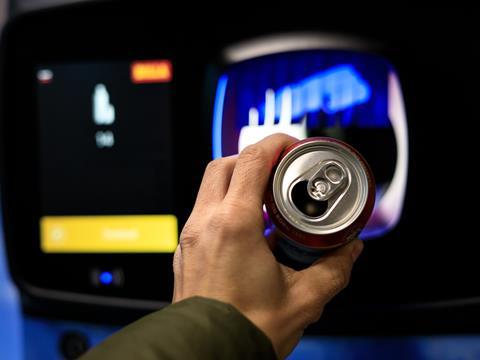
Today marks the launch of Malta’s nationwide deposit return scheme, which aims to help the country increase its recycling rates while also bringing a cultural change in terms of awareness around packaging sustainability.
The DRS in Malta is operated by BCRS Malta Ltd., which is the licensed not-for-profit private operator of the national Beverage Container Refund Scheme. The organization was incorporated by associations of beverage container producers, importers and retailers to assume the collective extended producer responsibility on their behalf. Sensoneo’s DRS system works as a backbone of the system by integrating all stakeholders and gathering data from all sources within the process chain.
Bringing the DRS to Malta has been considerably influenced by the strong tourism in the country. Although the population of the island country is only about 517 000, in the summer season tourists often outnumber locals. This reason, among others, led Malta to involve the hotel, restaurant and catering industry (HoReCa) and also to implement public recycling hubs.
As Edward Chetcuti, CEO of BCRS Malta Ltd. explains: “A deposit of 0.10 euro is added when buying beverages in single-use containers within the DRS scope. The scheme covers aluminum and steel cans, glass and PET bottles with a capacity between 0.1 and 3 liters. Dairy, juices, wine and alcoholic spirits exceeding 5.0 % alcohol by volume are not included in the scheme.”
There are three ways the beverage containers can be returned and refunded:
- By returning the used container to an RVM in retail
- By returning the used container to an RVM in a public recycling hub
- Where applicable by returning the used container to retailers participating in the scheme as a manual collection location
Over half of the 320 reverse vending machines (RVMs) are placed in shops and supermarkets. Vouchers that are issued in a particular shop or supermarket can only be redeemed there, which is a system known to most countries who implemented DRS.
In order to balance the market between large supermarkets having RVMs and small retail shops without an RVM on site, a similar number of RVMs are also placed in public “recycling hubs” for people that do not necessarily want to return empty containers to a supermarket. Malta is divided into about 65 localities and there is a Public Recycling Hub with RVMs in almost every one of them. The vouchers that are issued from these hubs can be redeemed from any registered retail outlet selling beverages across the whole country.
All economic operators in Malta are legally obliged to participate in the scheme. Because of the nature of the country, the biggest number of economic operators are not retailers, producers and distributors, but the hotel, restaurant and catering industries.
HoReCa economic operators are not obliged to collect beverage containers from people in the same way that the retailers are: when on-premises consumption, the responsibility of the establishment is to return the can or bottle to the operator in order to claim the deposit back. In the case of takeaway service, the deposit is charged and this responsibility lies on the customer.
When it comes to accommodation providers, hotels with a throughput in excess of 500,000 containers a year have their own RVM in place to make the logistics chain more efficient.
Learning new ways of recycling together is a message accompanying the launch of DRS in Malta. Currently, the country reportedly recycles less than 20% of single-use beverage containers and the goal is to reach 90% by 2026.














No comments yet